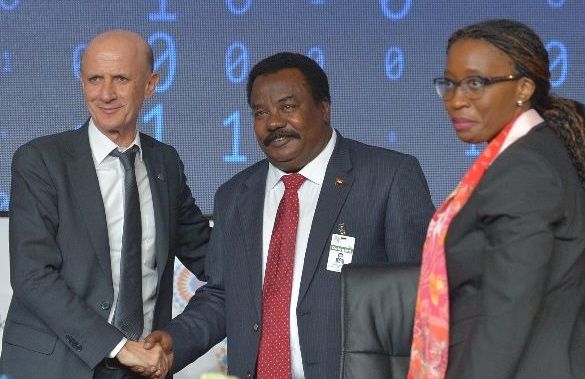
African finance ministers share views on digital economy one year after signing continental free trade agreement

The annual Economic Commission for Africa (ECA) Conference of African Ministers of Finance, Planning and Economic Development – COM2019 – taking place in Marrakesh this week, is focussing on the importance of digitisation to enhance African economies as the continent celebrates the first anniversary of the historic signing of the Africa Continental Free Trade Area (AfCFTA).
The Economic Commission for Africa is a UN agency with the mandate to promote the economic and social development of African states, foster intra-regional integration and promote international cooperation for Africa’s development.
The week-long conference which has drawn various seasoned experts and policy-makers from inside and outside Africa, weighs and evaluates this year’s theme – Fiscal Policy, Trade and the Private Sector in the Digital Era: A strategy for Africa – against the backdrop of recent economic and social development on the continent.
With the value of the global digital economy estimated at over US$11.5 trillion and set to rise to over US$23 trillion by 2025, according to Vera Songwe, the ECA Executive Secretary, the effects of digital trade and economy in Africa are points of key debate.
“The potential of Africa is, and has always been, promising… the continent has all the prerequisites for rapid economic transformation in the next decade…[but] the importance of digitization and the digital economy in driving growth and structural transformation, as well as optimizing fiscal performance in Africa can not be overstated,” she said.
“It is currently estimated to represent 15.5% of global GDP, expected to reach 25% in less than a decade [and] there has been a rise in the digital innovation hubs on the continent, such as the Silicon Savannah in Nairobi and the Kumasi Hive in Ghana, not to mention more solution-oriented technologies such as Flutterwave which has enabled global payment processing in Nigeria.”
“Such digital developments can have a transformative effect across the economy by reducing barriers to entry and expanding market reach for businesses, creating jobs, and boosting both domestic and foreign trade in goods and services,” she emphasised.
Zouhair Chorfi, the Secretary General of Morocco’s Ministry of Finance and incoming chair of the Committee of Experts, said “Digitisation is a great opportunity for Africa. It can transform Africa by increasing competitiveness, promoting strong integration, and reducing the cost of doing business.
The conference started officially with 38th Meeting of the Committee of Experts, followed by the week’s discussions centering on leveraging digital technologies to mobilize Africa’s domestic resources, strengthen competitiveness and speed up growth in all developmental sectors.
The conference will also provide a platform for delegates to review fiscal policies for the implementation of the continental free trade area, adopted a year ago on 21 March 2018. The agreement is now two ratifications away from the 22 member countries needed to enforce the trade bloc that envisages a gross domestic product of more than US$3 trillion.
Caption: Vera Songwe, the Executive Secretary of the Economic Commission for Africa, with Zouhair Chorfi, the incoming Chair of the Bureau, and HE Elsadig Bakheit Elfaki Abdalla, the outgoing chair.











































